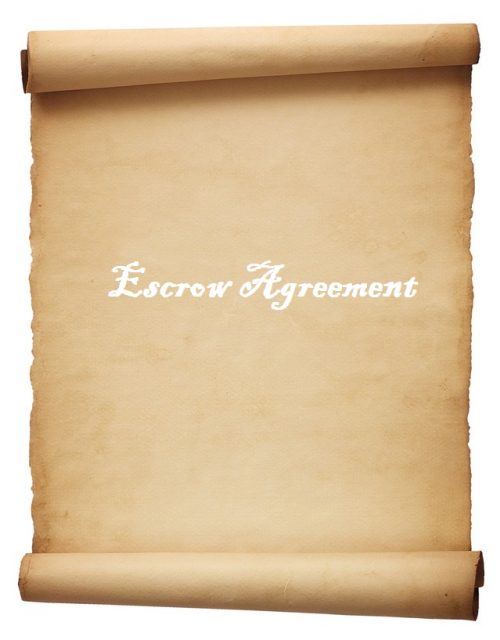
Escrow Agreements
The word “Escrow” as a noun means “a bond, deed or other document kept in the custody of a third party and taking effect only when a specified condition has been fulfilled.” “Escrow is not an acronym. It is derived from the Middle English word “escrow”, which means “scroll” or parchment.
We are currently engaged in an assignment to review procurement and the risks that need managing. We were discussing IT procurement with our client and asked if any Escrow Agreements were in place. The Head of Purchasing asked what an Escrow Agreement was, and, why were they necessary? This is not the first time we have had this response.
There are a number of scenarios why Escrow is important. One of them is the fact that the supplier of the software may go bankrupt and fail to support the software, the second is the supplier failing to meet their contractual obligations to maintain the software, If these, or other circumstances arise, the buying organisation need access to the IT software source code and a legal right to use it without breaching the software owners’ intellectual property rights. This requires an Escrow Agreement to be put in place. It requires specialist knowledge, and, on occasions, negotiations. We show below three important matters that require careful though (there are obviously more).
Release Event
These are the specific circumstances whereby the Escrow holder (a third party) will release the source code to the buyer. This should cover “the supplier entering into any composition or arrangement with its creditors or enters into liquidation whether by compulsory or voluntary agreement or has a receiver or administrative receiver appointed or the supplier ceases to trade.” It should also cover the situation where the suppliers become unwilling or unable to provide the agreed series and where the supplier is in breach of its obligations.
Obligations of the Escrow holder
These obligations must:
- Hold the material in a safe and secure environment
- At all times retain a copy of the latest copy of software
- Keep a register of all registered licensees
- Notify the IP owner if the software has been lost, damaged or destroyed
- Release the software to the licensee in accordance with the agreement
Payment
It must be agreed who will pay the deposit fees and when such fees are to be paid.
Summary
This is intended to be a taste of what is involved with Escrow Agreements. It is not intended not should it be construed as legal advice. Reference to your legal services specialists is necessary if you intend to take an initiative with Escrow.

